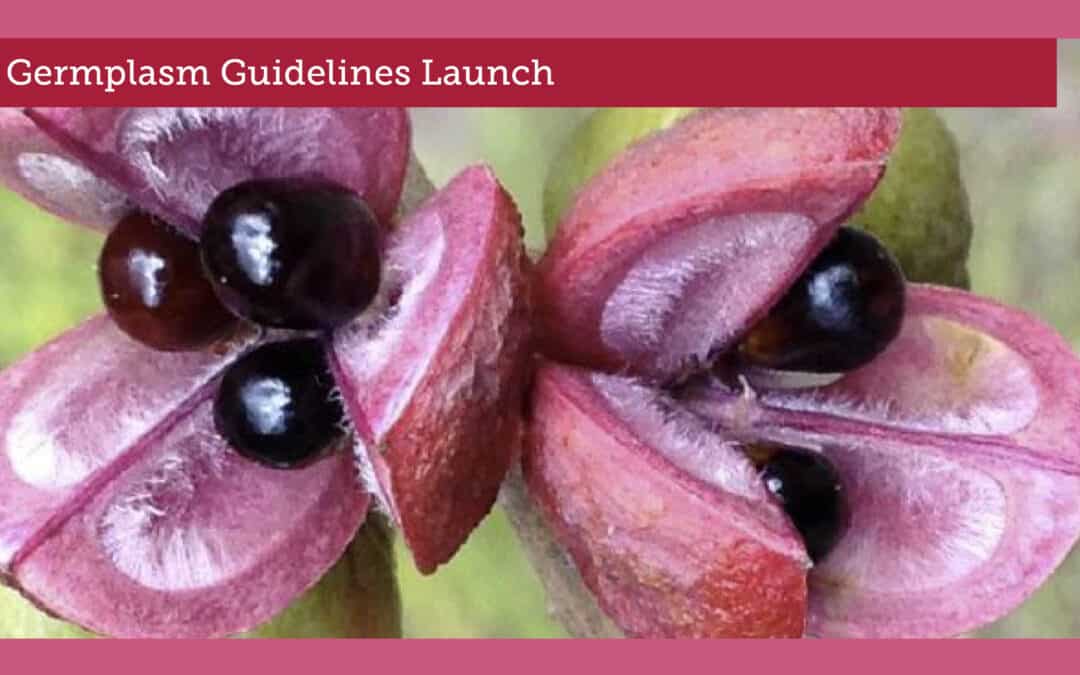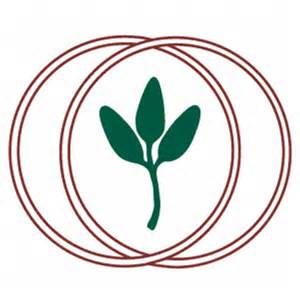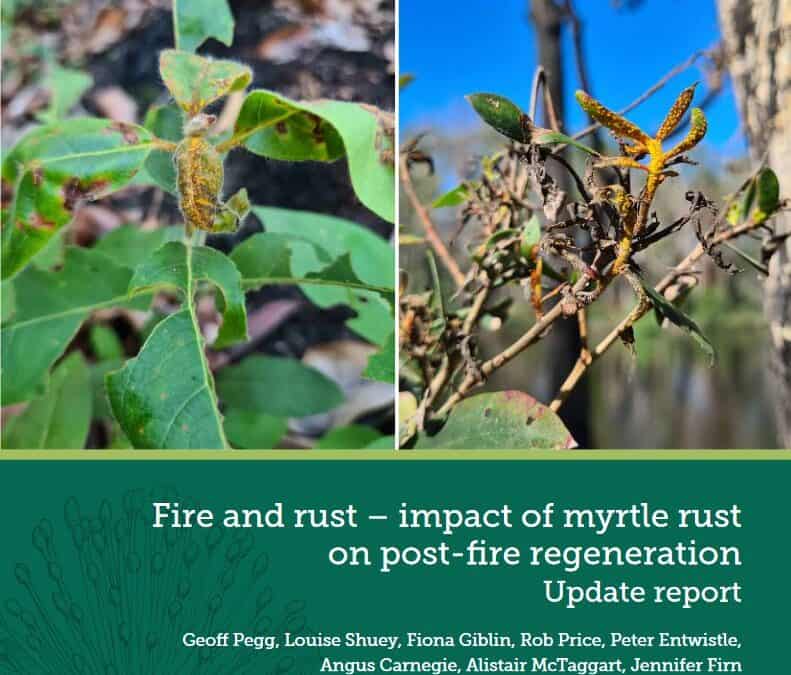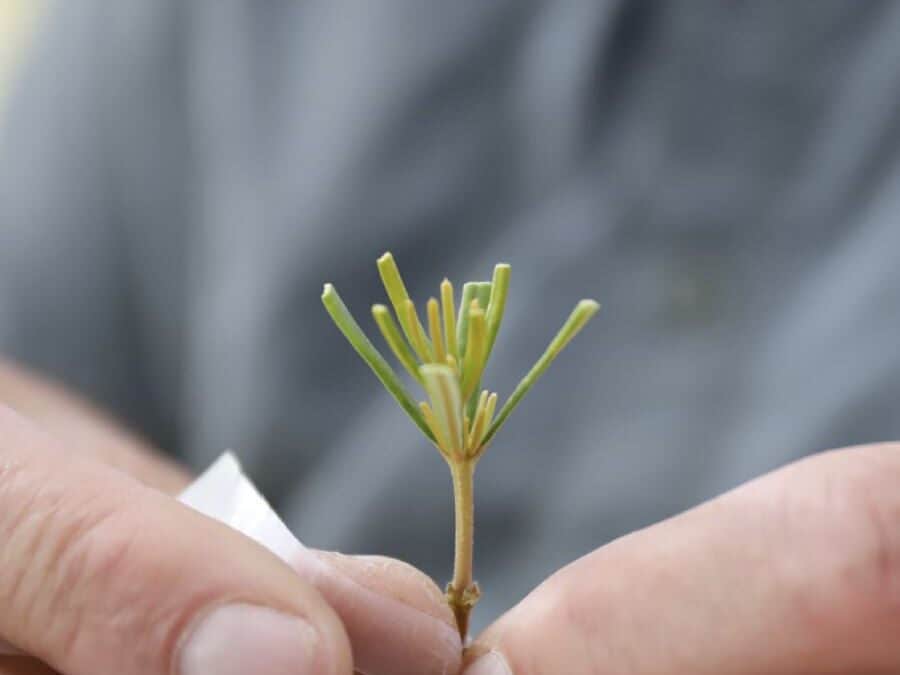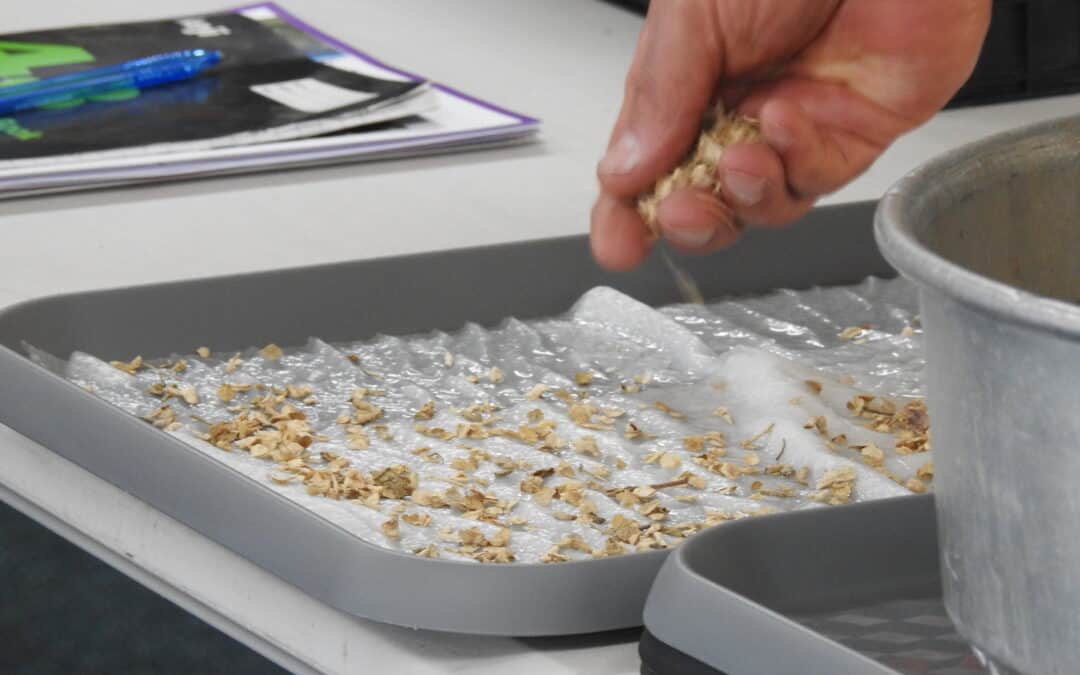
Sep 30, 2021 | News
ANPC is proud to announce the launch of the new Germplasm Guidelines, described by one contributor as “one of the most useful and practical tools for the uncertain years ahead of us”. We thank the many contributors who wrote chapters or one of the fifty case studies in this edition and others who provided peer review during the process. Plant material – germplasm – is stored in Australia’s conservation seed banks, as living collections in botanic gardens, tiny shoots in tissue culture, and even as cryo-stored seeds ready to be reinvigorated many years after storage. These guidelines showcase the latest techniques, literature and procedures for optimising germplasm storage and use. With plenty of infographics, illustrations and photos, these guidelines are necessary but enjoyable reading for staff within conservation agencies, scientists, nursery staff, students, volunteers, and anyone interested in applied plant biology. The Germplasm Guidelines are available for free download: https://www.anpc.asn.au/plant-germplasm/

Sep 30, 2021 | News
In case you missed it! Want to know why the Germplasm Guidelines were updated and what is included in this third edition? Keen to hear what the contributors think about when they’re not writing, researching and growing plants? Check out the Plant Germplasm Conservation playlist on the updated ANPC YouTube channel.

Sep 30, 2021 | News
Extensive surveys assessing the impact of Myrtle rust (Austropuccinia psidii) were conducted following the 2019/20 wildfires. The two reports are now available for download from our website and make for sobering reading. Myrtle rust symptoms and damage were found in all survey sites in fire-affected areas of south-east Queensland and NSW south to the Central coast region. New host species have been identified including Leptospermum speciosum (Showy tea tree), Eucalyptus pyrocarpa (Large-fruited blackbutt) and Eucalyptus amplifolia subsp. amplifolia (Cabbage gum). Significant impacts were identified on the endangered Rhodamnia rubescens (Scrub turpentine) and Uromyrtus australis (Peach myrtle). Myrtle rust symptoms have been observed for the first time on Eucalyptus pilularis (Blackbutt) and Syncarpia hillii (Satinay) on World Heritage K’gari (Fraser Island). Regeneration of Melaleuca quinquenervia (Broad-leaved paperbark), particularly in New South Wales, is of concern with the loss of established trees, and only 15 to 35% of seedlings showing evidence of resistance. Melaleuca nodosa (Prickly-leaved paperbark) is highly susceptible to Myrtle rust with only small numbers of trees showing resistance/tolerance to the disease. Longer-term monitoring of all sites is required to understand the impacts of Myrtle rust on Myrtaceae regenerating after wildfire. The ANPC would like to thank the Threatened Species Recovery Hub for funding this project.

Sep 30, 2021 | News
2021 marks the 30th anniversary of the ANPC! The Summer edition of Australasian Plant Conservation will celebrate this milestone. Articles on the history of the ANPC, members’ retrospectives and reflections on plant conservation issues (and changes over the past 30 years) are encouraged, with a deadline of 1 November 2021. We are still accepting regular articles (including on issues relevant to plant conservation, and plant responses to fire) as usual, for the Anniversary Edition. Find out more here.

Sep 30, 2021 | News
In exciting news, the Australian Seed Federation Board is establishing a new working group for the native seed industry sector. This is something for which the ANPC has advocated for a long time. The new group, to be called the ‘Native Seed Industry Working Group’ will provide a representative group for seed companies involved in the native seed industry sector. To be involved in this group, native seed companies must be members of the Australian Seed Federation. To become a member of the ASF Native Seed Industry Working Group please email Osman Mewett by COB Friday 1 October 2021. The ASF Secretariat will look to hold the first meeting of the Group the week beginning Monday 4 October, where the first orders of business will be to elect the Group’s Executive and determine the key objectives of the Group.
